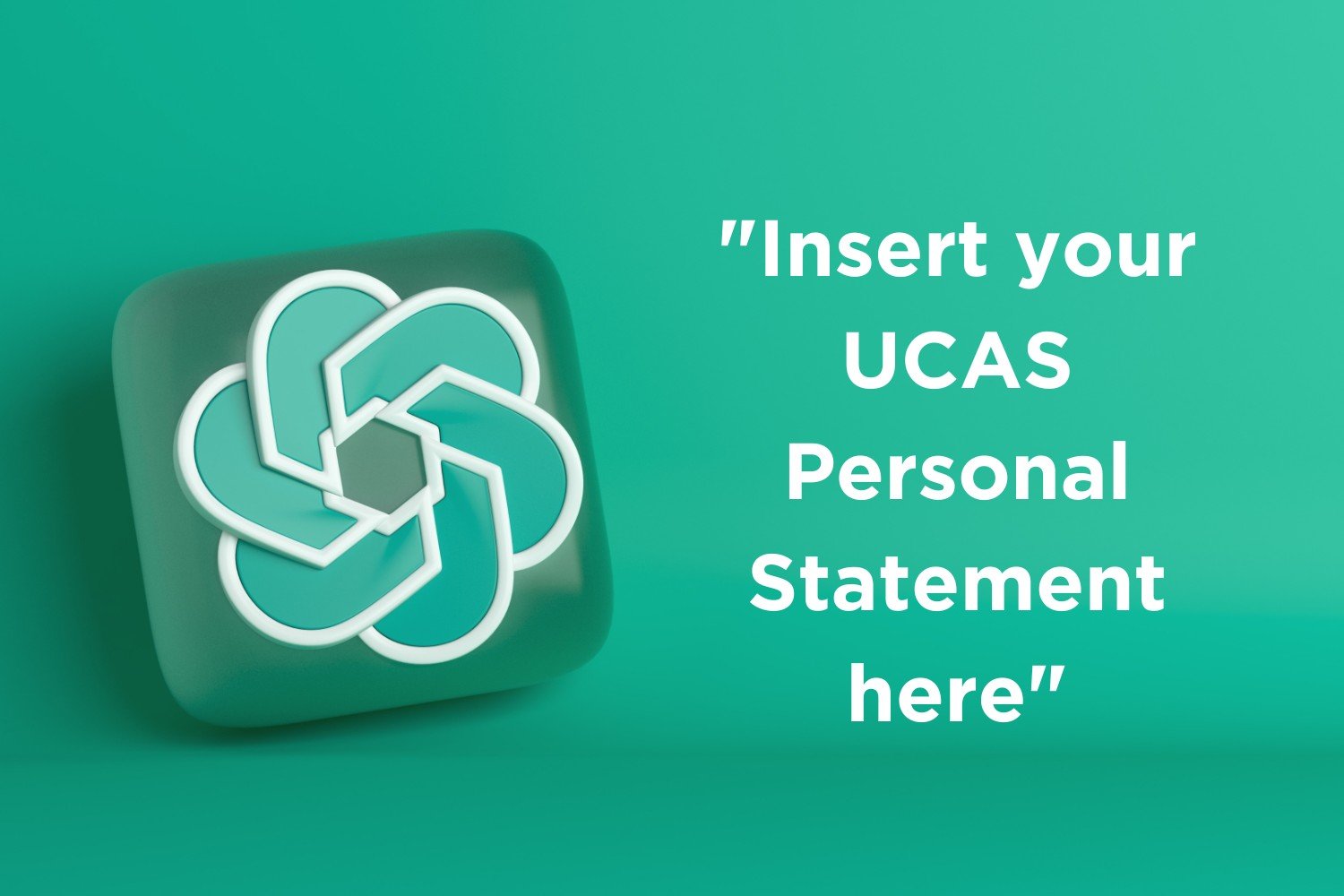Articles
Something new (nearly) every week!
Search all articles

Ten things you should know about the new UCAS Personal Statement for 2026
The other day I asked ChatGPT what it could tell me about the new UCAS Personal Statements for 2026. “Of course” it said before going on to explain that the new Personal Statement would consist of six specific questions. When I suggested that it was wrong, and there would be only three questions, it admitted “You're right!” before listing the wrong three questions.
ChatGPT, you see, gets its information from the wild west of the internet, and clearly on this particular subject, the internet doesn’t have a clue what it’s talking about.
So instead of trusting AI to sort the truth from the myths, here are ten actual, real, true things that you should know about the new UCAS Personal Statements for 2026.

Making big decisions with a bias to action
A few weeks ago I wrote a piece about five mindset changes that I’d learned about in “Design your Life” by Bill Burnett and Dave Evans. I described one of these mindsets as “try stuff”, but the term they use for it is having a “bias to action”. For me it’s been such a game changer in my life that I thought it worth exploring a bit more deeply.
What is a “bias to action”? What does it look like when making long term decisions? And how can I start to make it a part of my mindset?

Why are some universities so ridiculously hard to get into?
Whether you are applying to university yourself, or are helping and advising students, you’ll have all heard the same stories: a student predicted A*A*A*, with an excellent Personal Statement and Reference gets rejected from a top university. Come A-level results day, some of these students will find themselves with no offers at all, and might even find themselves as a headline in the press.
But why is this? Why are amazing, talented students so frequently finding themselves rejected by universities, when there seems to be nothing wrong at all with their applications?
Well, to understand, we need to go back a few steps.

UCAS Extra and Clearing: A failsafe for the unexpected
Sometimes, the UCAS system might seem a bit clunky and a bit restrictive, and for many students it seems a bit complicated. But in the main, it seems to work for most people, with some 384,000 students ending up at their firm or insurance choices last year.
Yet each year, there are a whole bunch of students who the main process doesn’t quite work properly for. That’s where UCAS Extra and Clearing come in; to provide you with a failsafe for when the unexpected happens.
You might not plan on using either of these, but trust me, it's well worth spending the next five minutes reading all about them, so that you have that failsafe ready, should you need it!

‘I just liked the logo’: How branding can help you make your university choice.
I expect at some point, you will all look at a university website and think ‘Yes, that’s exactly what I’ve been looking for!’, or perhaps ‘Nah, this isn’t for me’. And trust me, a lot of that will be to do with their brand, and how they have presented themselves.
Because of this, I wanted to give you just a few thoughts about university branding.
Bear with me; I promise there will be some useful take-aways at the end, and along the way you’ll learn some new stuff about marketing and strategy.

University rankings and league tables: just how useful are they?
You will probably be familiar with the concept of university league tables: they are rankings of universities, listed from best to worst, published so that you can easily identify the top universities in the country, and in the world - right?
Well, let's see…

Just who are admissions tutors anyway?
This newsletter is all about you making better university choices, and of course, making a great application. But what of the universities? They make decisions too, and most specifically they’ll decide whether to accept your application and offer you a place!
In this article, I’ll give you a bit of insight into how universities make decisions, who makes the decisions, and the processes they use.

Just how ambitious should you be with your initial five UCAS choices?
The basic principle behind the UCAS system is that it balances the need for students to have a range of choices when they apply, with the need for universities to have some kind of predictability in working out how many offers to make. So, for many years, students have been able to make up to five choices. Any more, and the universities will simply be swamped with applications that are not realistic or necessary. Any less and you could run the risk of not getting an offer of a place that suits you.
The system works reasonably well most of the time, provided students are realistic with their applications, and provided universities are transparent with their entry criteria, and consistent with their offers. This year nearly 79% of A-level students secured their firm choice (ie. their first choice course), while 12% got into their insurance choice.
So, how do you make sure the system works well for you? How do you turn all that research, all those possible choices, into a list of five courses on your application form that gives you the best chance of getting into a course that you really want to do? Is it as simple as listing your five favourite courses? I’m afraid not. But neither is it some dark art where you need to have some amazing insight and specialist knowledge to get it right. Just read on, and I’ll try to make it as simple as possible.

Top 10 things I learnt at the University of Cambridge Open Day
A few days after I’d been to the University of Oxford Open Day I had a message from a long-standing friend that he’d be attending the University of Cambridge Open Day with his son the following week. Did I want to meet up?
I thought for at least half a second before replying a very positive “yes”. After seeing Oxford, what better than to see their nearest and dearest rival on equal terms. And of course to catch up with an old friend who I hadn't seen for a couple of years (you know who you are!)
So off we went, on a beautifully sunny day to visit the University of Cambridge!

Top 10 things I learnt at the University of Oxford Open Day
At the start of the summer, I was staying with my brother in London, and his niece had booked to attend the University of Oxford Open Day. “Would I like to go along with them?” they asked.
In my 30+ years working in universities, I’ve visited Oxford numerous times, and I’ve shared a stage with University of Oxford admissions tutors even more often. But I’ve never been to an Open Day there, and I’ve never been right inside any of the individual colleges. I couldn’t resist the opportunity!

Writing your UCAS Personal Statement using ChatGPT
I’m writing this during a week when hundreds, if not thousands, of schools world-wide will be holding university application weeks for their year 12 students. Right at the centre of these events will be kick-off sessions for writing your UCAS Personal Statements. I wonder how many of these sessions will focus around how to make best use of ChatGPT, and how many will just conveniently ignore it?

What exactly are super-curricular activities, and why should I be bothered?
You’ve all heard of extra-curricular activities; things like sport, games, clubs and community activities that you do outside of your studies. But what about super-curricular activities? Perhaps you’ve heard about these from teachers or advisers, but aren’t really sure what they are all about. If so, read on…

Top 20 Personal Statement tips Part 2: Countdown from #10 to #1
As part of the launch for my new guide “How to write your UCAS Personal Statement” I’ve been counting down my top 20 tips over on Instagram.
In Part 2 of this article, we check out tips ten to one, and examine them in just a little bit more detail.

Top 20 Personal Statement tips: Countdown from #20 to #11
As part of the launch for my new guide “How to write your UCAS Personal Statement” guide. I’ve been counting down my top 20 tips over on Instagram.
In this article, I look at them in just a tiny bit more detail.
